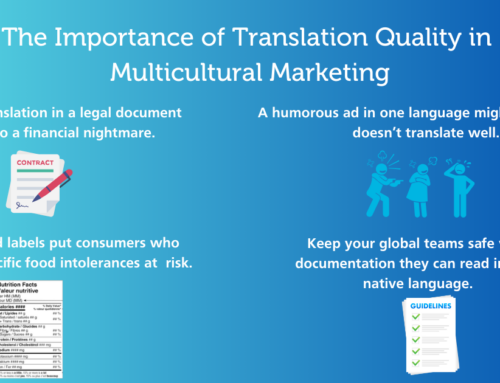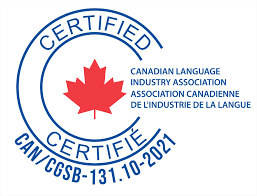Federal and provincial governments updating French language requirements
If your company does business in Quebec, or is planning to enter the Canadian market, you should know about important changes and updates coming to language laws in Canada. The provincial governments of Quebec and Ontario, and the federal government have all brought forward legislation to protect and encourage the use of French, particularly in the workplace. Time frames for the updates range from Ontario’s gradual, step-by-step approach to Quebec’s swift and far-ranging implementation of major changes, but the time to get ready for the new rules is now. These regulations will have an expanded scope, cover more businesses, and come with stiff penalties for non-compliance. Here’s what you need to know:
Bill 96 brings major updates and expansion to language laws in Quebec
The Quebec government is determined to see French keep its position as the language of everyday life in the province. One of the ways they are attempting this is with Bill 96, currently awaiting final approval. This bill expands the scope of Quebec’s current language regulations (Bill 101) and brings updates to existing rules surrounding French language in the province. One of the key changes includes lowering the threshold for ‘francization*’ to companies in Quebec with 25 employees or more (previously 50 employees or more).
*Francization
Francization means that French is the usual language used in the workplace for internal and external communications.
Importantly, the rules will apply to any federally registered private company in Canada doing business in Quebec, not just companies based in the province. You will not need to have a brick-and-mortar storefront in the province to be subject to Bill 96 rules and penalties. There’s also an expansion of French requirements for a wide range of business communications, including contracts, trademarks, social media posts, product catalogues, and even corporate voicemail. Finally, to ensure there is sufficient resources to police these new rules, Bill 96 will see the creation of a French language commissioner and strengthens the powers of the Office québécois de la langue française, a provincial organization tasked with monitoring and encouraging the use of the French language in Quebec.
More than ever, a mistake or omission on items such as your bilingual packaging, signage, or workplace communications could have significant consequences. When Bill 96 is finalized and in place, penalties could range as high as $30,000 for non-compliance and some offences may be subject to daily fines. If you are already doing business in Quebec, or planning to expand into this market, professional translation services are more important than ever. Here at LAT, our multilingual experts include native speakers of Quebecois French, well-versed in the language rules you must follow to do business in the province, so you can avoid the risk of costly financial impacts. Get in touch with us to learn how we can help you smoothly navigate the complexities of Bill 96 or read on to learn about changes to Canada’s Official Languages Act.
Additional resources
Download the LAT resource guide Doing Business in Quebec for important translation guidelines to help your business succeed in the Quebec marketplace.
Read our previous blog post The Potential Impact of Bill 96.
Updates coming for Canada’s Official Languages Act
The last overhaul of Canada’s Official Languages Act took place in 1988. Now Canada’s federal government is giving the act a refresh for the 21st century with Bill C-13. Among other initiatives, this wide-ranging piece of legislation widens the scope of the original official languages act, strengthens consumer and worker rights to French language communication, and expands the powers of the Commissioner of Official Languages.
Initially the regulations will apply to federally registered companies doing business in Quebec, but anyone in the Canadian marketplace or planning to expand into the country’s officially bilingual (English/French) market should be aware of these changes and their impacts. The specific rules and conditions contained in Bill C-13 are still being finalized at the time of this writing, but the intent of the legislation is clear. Improve access to French-language service wherever there is a strong francophone presence in the country and strengthen Canada’s bilingual culture.
With these new rules coming into play across the country, it’s more important than ever to understand why professional translation services can be a great investment in your brand image. Read our previous blog post The Top 4 Canadian Labelling Requirements to find out how LAT’s multilingual marketing expertise can help you avoid embarrassing, sometimes costly mistakes.
We will continue to monitor the progress of Bill 96, Bill C-13, and Ontario’s French Language Services Act as they move closer to ratification and implementation, so we can keep our readers up-to-date on this important topic. If you want to find out how LAT can help you navigate multilingual markets in Canada and around the world, why not get in touch with us?













